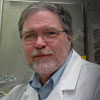- Back to Home (Ruminant Nutrition Symposium)
25th Annual Ruminant Nutrition Symposium, February 4 - February 5, 2014
Speaker Information
|
Dr. Donald C. Beitz earned B.S. and M.S. degrees in agricultural science in 1962 and dairy science in 1963 from the University of Illinois and a Ph.D. degree from Michigan State University in 1967 with majors in dairy nutrition and biochemistry. Dr. Beitz began his professional career at Iowa State University with an appointment in the Departments of Animal Science and of Biochemistry, Biophysics, and Molecular Biology. He is a Charles F. Curtiss Distinguished Professor of Agriculture. Teaching responsibilities include biochemistry courses for veterinary, undergraduate, and graduate students. Dr. Beitz’s research activities relate to practical problems of animal agriculture and human nutrition and focused on milk fever, ketosis, cholesterol regulation by diet, dietary and genetic control of milk and meat composition, mitochondrial DNA and milk production, and beef tenderness as influenced by vitamin D. Dr. Beitz has published more than 263 peer-reviewed manuscripts, 319 abstracts, and 9 patents. Honors included local and national awards for teaching, research, and advising excellence. Moreover, he is a Fellow of ADSA, ASAS, ASN, Iowa Academy of Science, and AAAS. He has served as president of ADSA, CAST, and FASS. Dr. Beitz has had a fulfilling career as a researcher, teacher, and advisor at Iowa State University and serving agricultural societies. |
|
Dr. Robert Collier is a professor and former head of the Department of Animal Sciences at the University of Arizona. He received his BS degree in Zoology from Eastern Illinois University in 1969, served in the Army Medical Corps, and then obtained his MSc degree in Zoology from Eastern Illinois University in 1973 and his PhD in Dairy Science from the University of Illinois in 1976. After his PhD, Dr. Collier was a NIH post-doctorate fellow at Michigan State University in the laboratory of Dr. Allen Tucker. He was a faculty member in the Department of Dairy Science at the University of Florida from 1976 to 1985, and then moved to Monsanto Company where he was the Dairy Research Director until 2009. His areas of expertise include environmental and lactation physiology, endocrinology and molecular biology. Currently Dr. Collier teaches undergraduate courses and conducts research in the fields of environmental physiology with a focus on the dairy industry |
|
Dr. Tanya F. Gressley is an Associate Professor in the Department of Animal and Food Sciences at the University of Delaware. She obtained her BSc in 1997 and the MSc degree in 1999 in Animal Sciences from the University of Maryland. She then moved to the University of Wisconsin in Madison where she received her PhD in 2005. Dr. Gressley teaches dairy production and lactation physiology and her research program focuses on multiple aspects of dairy cattle nutrition as they relate to health and productivity. |
|
Dr. Timothy Hackmann is an Assistant Professor of Gastrointestinal Microbiology in the Department of Animal Sciences at University of Florida. He received his BS in Biological Sciences from University of Missouri in 2005, MS in Animal Sciences from University of Missouri in 2008, and PhD in Nutrition from The Ohio State University in 2013. Dr. Hackmann’s research attempts to improve efficiency of rumen microbial growth. Specifically, his program characterizes how rumen microbes respond to excess energy, with the goals of 1) eliminating wasteful microbes and 2) improving predictions of diet formulation software. |
|
Dr. David J. Hurley is a professor in the Food Animal Health and Management Program at the University of Georgia. He did his BA studies in the University of Wisconsin system in the area of chemistry and biological chemistry. His PhD studies were at the Pennsylvania State University in microbiology. He has worked in animal health research since the mid-1980’s, first in the Department of Veterinary Science at the Pennsylvania State University, then at the South Dakota State University, and currently while at University of Georgia. He has served as a consultant and collaborator with many companies in animal health and was co-founder of Rural Technologies, Inc. in Brookings South Dakota. His research has focused on cattle, swine and horses, with a special interest in immune development and regulation. He has worked on the mammary gland, mammary inflammation and immunity and immune transfer to the neonate for about 25 years. His work included methods to assess the immune outcomes of vaccination and the role of inflammatory activation in the progress of disease. He has developed tools and models to study inflammation that impacts production systems including fairly simple ELISA based measurements that assess the level of occult inflammation in the reproductive tract of dairy cows and the relationship of that inflammation to pregnancy success. |
|
Dr. Phillip Lancaster was born and raised on a family livestock and crop farm in west central Illinois. He earned his BS degree in Agricultural Science from Western Illinois University in 1999, the MSc degree in Animal Science in 2004 from the University of Missouri, and the PhD degree in Animal Science with an emphasis on ruminant nutrition in 2008 from Texas A&M University. His dissertation research focused on characterization of feed efficiency traits and relationships with body composition and reproductive traits in Brangus heifers. Dr. Lancaster has published several abstracts, research reports, and journal articles on feed efficiency in beef cattle. Following graduation he accepted a position as a postdoctoral fellow in the Department of Animal Science at Oklahoma State University where his research focused on intramuscular adipose tissue development in growing-finishing beef cattle. In 2013, he joined the Range Cattle Research and Education Center at University of Florida as assistant professor, where one of his primary research efforts is feed efficiency in mature beef cattle. |
|
Dr. Hélène Lapierre is a research scientist working for Agriculture and Agri-Food Canada at the Dairy and Swine Research and Development Centre in Sherbrooke, Québec, Canada. She is also adjunct professor at Université Laval, QC. She obtained her BSc and MSc in Animal Science form Université Laval, Quebec; her PhD in Physiology from Université de Sherbrooke, Quebec; and completed a post-doctorate at the USDA Research Centre in Beltsville, Maryland with Drs. C.K. Reynolds and H.F. Tyrrell. Her research aims to improve the efficiency of nitrogen utilization through a better knowledge of intermediary metabolism of nitrogenous compounds. The outcomes of her research target a reduction in feeding costs for dairy producers and a reduction in dietary nitrogen losses to the environment. |
|
Dr. Jim MacDonald is an Associate Professor of Animal Science at the University of Nebraska-Lincoln. Before moving to Nebraska, he was the project director of the beef cattle research program at the Texas AgriLife Research and Extension Center in Amarillo from 2006 to 2012. While in Texas, he worked extensively on incorporating distiller’s grains into beef production systems in the Southern Plains. Current areas of interest include incorporating alternative feeds into beef diets, improving yearling stocker production systems, integrated cropping and livestock systems, improving the management of newly received calves, and investigating dietary effects on beef quality. Dr. MacDonald was raised on a cow-calf and diversified cropping operation in central North Dakota. He received his BSc in Animal Sciences from North Dakota State University, and his MSc and PhD from the University of Nebraska. He lives with his wife and two children outside of Lincoln. |
 |
Dr. Frank Mitloehner is a Professor and Air Quality Extension Specialist in the Department of Animal Science at the University of California Davis. Dr. Mitloehner received his MS degree in Animal Science and Agricultural Engineering from the University of Leipzig, Germany, in 1996 and his PhD degree in Animal Science from Texas Technical University in 2000. In 2002 he joined the faculty in the Department of Animal Science at the University of California-Davis. Dr. Mitloehner has generated and published data that are rapidly changing how livestock facilities in California and throughout the US are regulated. The focus of his research are in the areas of air quality as it relates to livestock production, especially quantification of ammonia, dust, and odor emissions in dairies, beef feedlots, and poultry operations. The main objective is to help establishing environmentally benign livestock systems. An additional area of research is in environmental physiology, focusing on effects of air emissions on animal health and welfare. |
|
Dr. Corwin Nelson is an Assistant Professor of Physiology in the Department of Animal Sciences at the University of Florida. Dr. Nelson was born and raised on a dairy farm in East Central Minnesota. After a year of the Farm and Industry Short Course at the University of Wisconsin-Madison, and a couple years of farming, he enrolled at the University of Minnesota-Duluth and earned his BSc in Biochemistry in 2006. He continued on to Iowa State University to study under Dr. Don Beitz and Dr. John Lippolis at the USDA National Animal Disease Center. He received his PhD in Biochemistry and Immunobiology in 2010 for his studies on vitamin D signaling in the bovine immune system. Upon completion of his PhD, Dr. Nelson returned to the University of Wisconsin-Madison as a postdoctorate fellow with Dr. Colleen Hayes in the Department of Biochemistry to study the role of vitamin D in prevention and treatment of multiple sclerosis, an autoimmune disorder. In 2013, he joined the faculty in the Department of Animal Sciences at the University of Florida. His research continues to focus on the regulation and the influence of vitamin D metabolism on the immune system with an emphasis on mastitis in dairy cattle. Dr. Nelson and his family are enjoying the warm Florida weather after many long, cold winters in the Upper Midwest. |
 |
Dr. Fred Owens grew up on a farm in Wisconsin and did his graduate work at the University of Minnesota. He spent 6 years in the Animal Science Department at the University of Illinois before joining the faculty at Oklahoma State University. At Oklahoma State, Dr. Owens conducted research on rumen function, metabolic disorders, feed intake, feed additives, and growth and development. During his 24 years at Oklahoma State, he was Editor-in-Chief for the Journal of Animal Science and won the Morrison Award from the American Society of Animal Science. In 1998, Dr. Owens retired from Oklahoma State to start a new career with DuPont Specialty Grains that was folded into Pioneer Hi-Bred when DuPont purchased Pioneer. As Senior Ruminant Research Nutritionist at Pioneer Hi-Bred International, he is involved with developing and testing cereal crops and oilseeds that have been or can be altered to improve both nutrient availability and quality of milk and meat produced by ruminants. |
|
Dr. Greg Penner joined the Department of Animal and Poultry Science at the University of Saskatchewan as an Assistant Professor in 2009. He obtained his BSA and MSc degrees from the University of Saskatchewan in 2004, and his PhD from the University of Alberta in 2009. His research program focuses on understanding the regulation of absorptive and barrier function of the gastrointestinal tract in ruminants. Notable accomplishments include the development of 2 indwelling pH measurement systems that have been adopted by the research community worldwide. Dr. Penner has a well-funded research program, has published 40 peer-reviewed papers, provided over 25 invited presentations and, in 2012, he received the Canadian Society of Animal Science Young Scientist Award. |
 |
Dr. Flávio A.P. Santos is a Professor of Ruminant Nutrition and current chair of the Department of Animal Sciences in the School of Agriculture (ESALQ) at the University of São Paulo, Brazil. He obtained his MSc degree in Animal Nutrition and Forage Conservation from the University of São Paulo in 1991 and the PhD degree in Ruminant Nutrition in the Department of Animal Sciences at the University of Arizona in 1996. His research focuses on the areas of protein metabolism of dairy cattle, grain processing and starch utilization by ruminants, grain supplementation of cattle grazing tropical pastures, and feedlot nutrition. Dr. Santos has supervised 8 PhD and 31 MSc students, and published 72 scientific papers in the areas of ruminant nutrition and forage conservation and utilization. |









